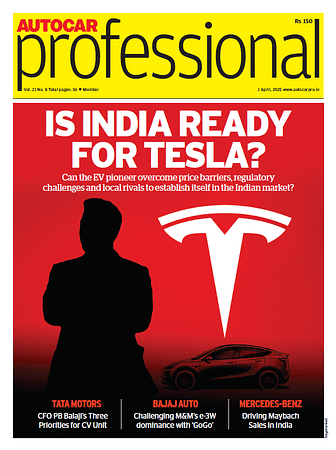SIAM: 'Diesel ban gives impression of instability in policy regime'
SIAM says all diesel cars currently manufactured in India comply with the current emission norms set by government of India and as such cannot be considered as ‘polluting’and the ‘polluter pays’ principle cannot be applied.
The Society of Indian Automobile Manufacturers (SIAM), the apex industry body which represents vehicle and vehicular engine manufacturers in India, has put forward some facts with reference to the ban being exercised by the Supreme Court on diesel passenger cars of 2000cc and above engine capacity.
As per the study conducted recently by IIT Kanpur, all types of passenger cars overall contribute to only 2% of the particulate matter (PM) 2.5 pollution load in NCT. Out of this 2%, all diesel cars are estimated to contribute only 1.5% of the PM 2.5 pollution load. Further BS-IV diesel cars contribute only 0.5 % of PM 2.5 emissions.
SIAM says that all diesel cars currently manufactured in the country comply with the current emission norms set by government of India and as such cannot be considered as ‘polluting’, and the ‘polluter pays’ principle cannot be applied, unless there is a violation of the notified emission norms. Importantly, the automotive industry has made significant investments in diesel technology which are in accordance with government’s investment policies. As such, the association’s note says “putting any restrictions or bans on a legally compliant industry is tantamount to an infringement of the fundamental right to do business in the country.”
According to SIAM, a ban on diesel vehicles is not going to achieve the desired objective of reducing pollution, but will vilify diesel technology which has gone through a major transformation over the last 15 years and today is highly clean, as well as energy efficient. A ban on BS IV diesel cars legally encourages old and highly polluting vehicles, which do not meet current emission norms, to continue plying, while not allowing new vehicles compliant with current emission norms to be used. This goes against the objective of the ban.
Policy uncertainty keeping new investments at bay
Furthermore, says SIAM, this “also gives an impression that there is no stability or predictability in the policy regime which will deeply dent the country’s global image as an investment destination and the ‘Make in India’ priority. Many auto MNCs have already taken a decision to freeze further investments in India until complete clarity is achieved on key policy issues which can have a bearing on their business prospects in India.”
The auto industry, which has with a total size of approximately Rs 600,000 crore, contributes almost half of the manufacturing GDP of the country and employs more than 31 million persons directly and indirectly. As per the government’s Automotive Mission Plan 2026, the auto industry has the potential to employ a further 65 million persons in the next 10 years. SIAM has asked the government to arrive at a unified stand on major policy issues like the diesel case and clarify the policy to the Courts, as well as globally.
Also read: Taxi operators find it tough converting from diesel to CNG in Delhi-NCR
RELATED ARTICLES
Rajiv Bajaj reappointed MD and CEO of Bajaj Auto for five-year term
Bajaj Auto’s Board of Directors has approved the re-appointment of Rajiv Bajaj as the company’s MD and CEO for another f...
JSW MG Motor launches Comet EV Blackstorm edition
The key highlights of the Comet EV Blackstorm, which is now the top-end variant, are its ‘Starry Black’ exterior along w...
Maruti Suzuki begins production at new Kharkhoda plant
Phase 1 of the Kharkhoda plant will have an annual production capacity of 250,000 units and produce the Brezza compact S...






 By Autocar Professional Bureau
By Autocar Professional Bureau
 29 Apr 2016
29 Apr 2016
 3919 Views
3919 Views








 Ajit Dalvi
Ajit Dalvi

